Jazz Matters Show - May 2024
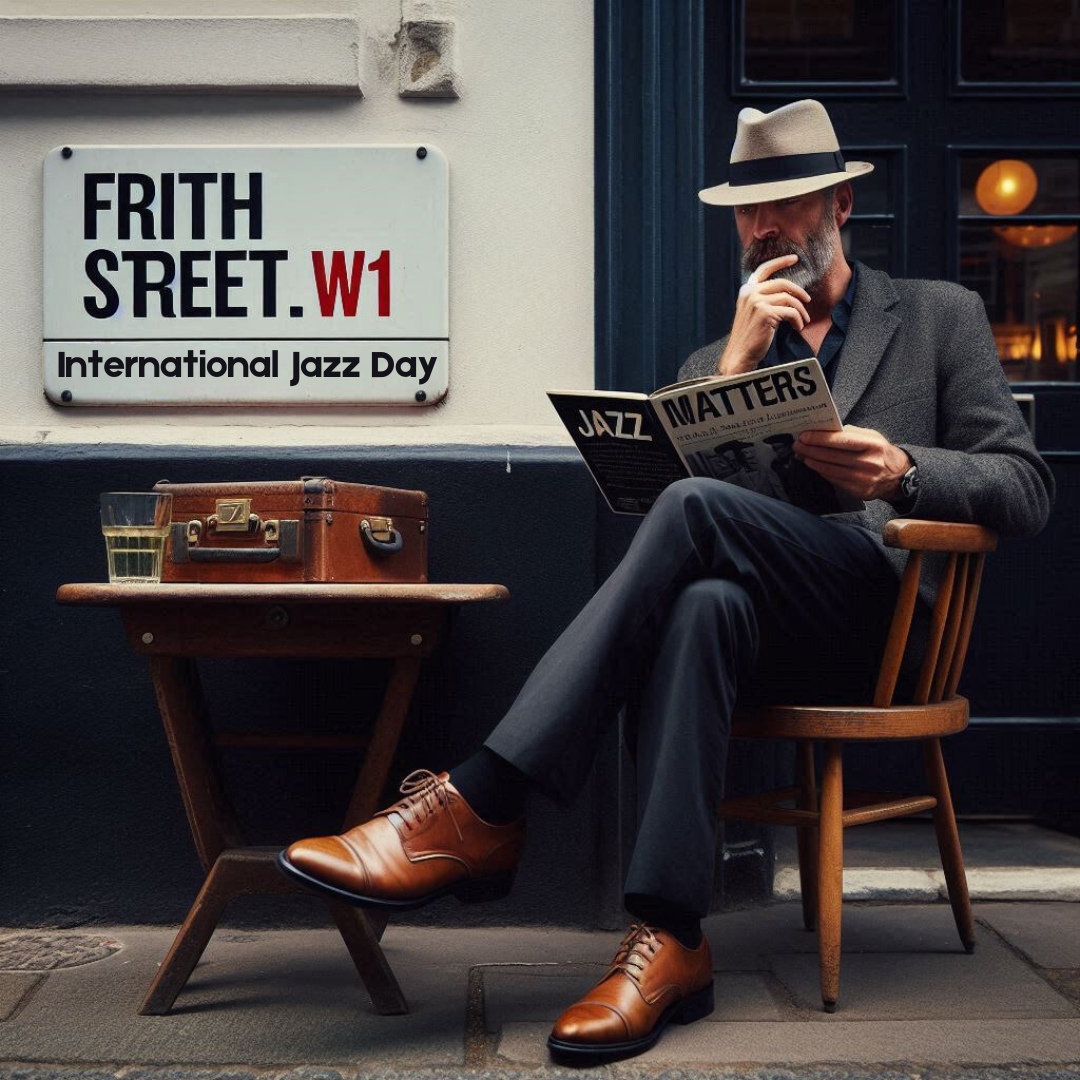
This May 2024 show is my personal nod to International Jazz Day (Tue, 30 Apr 2024) and it's all about celebrating the incredible diversity of jazz, a genre that transcends borders and decades. Here's the thing: jazz isn't just smoky nightclubs and vintage records. It's a vibrant tapestry woven from the threads of countless cultures and eras. This month, I'll be embarking on a global jazz odyssey, exploring the fiery rhythms of Jazz, the electrifying energy of fusion, and the smooth grooves of nu-jazz.
I'll also be revisiting some timeless classics and uncovering hidden gems I've stumbled upon in my never-ending quest for the perfect jazz selection.
So, grab your favourite beverage, settle in, and get ready to let the music take you on a journey. If you have a particular region or era of jazz you're curious about? Let me know by email and I can tailor upcoming shows to explore your interests! Here at "Jazz Matters," I believe that Jazz truly does Matter. It's more than just music; it's a conversation, a feeling, and a way of connecting with the world around us. So, buckle up and get ready to experience the magic of Jazz in some its glorious forms.
Enjoy the Music I Love
Playlist
Amancio D’Silva - A Street In Bombay
Kahil ElZahr - Ritual trio - Tribute to Malachi Favors
The Lloyd Mcneil Quartet – ASHA
Nik Bärtsch’s RONIN RHYTHM CLAN - Modul 22
Leon Thomas - Shape Your Mind To Die
Les McCann, Eddie Harris - Compared to What - Live at Montreux
Fergus McCreadie - Stony Gate
Remy Le Boeuf’s Assembly of Shadows - Stop and Go
Brian Blade Fellowship - Variations of a Bloodline
Kamaal Williams – Stings
Build An Ark - Precious, Priceless
The Swing Prophets – Kalahari
Kelan Phil Cohran & Legacy – White Nile
Lonnie Liston Smith & the Cosmic Echoes - Sais (Egypt)
Harry Beckett - Rings Within Rings
Amancio D’Silva - A Street In Bombay
Amancio D'Silva was an Indian jazz guitarist and composer, known for his own recordings and his collaborations with other musicians in Britain, notably Joe Harriott and Stan Tracey. He was born in Bombay (now Mumbai), India, to Goan parents. He took up guitar in his teens, influenced by American jazz guitarists such as Charlie Christian and Wes Montgomery whom he heard on the radio, and soon began performing with local jazz groups. By his early 20s he had formed his own group, and toured around India.
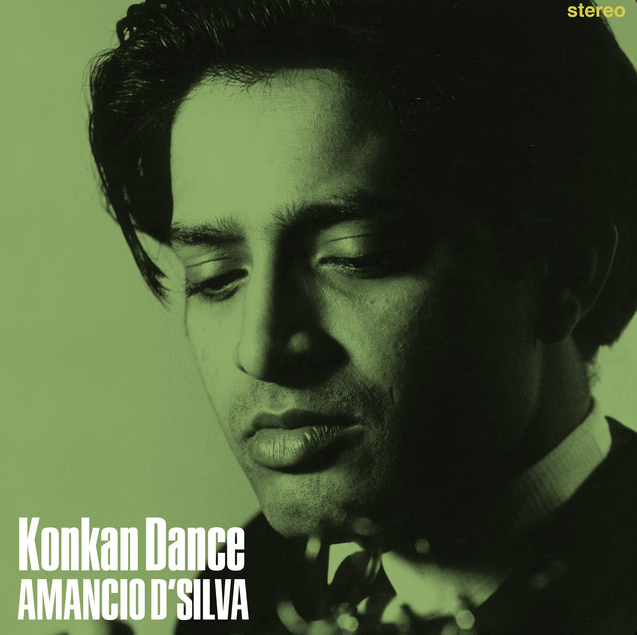
He met his future wife Joyce, an Irish-born teacher, in Simla. He gained such a reputation as a musician that Gayatri Devi, the Maharani of Jaipur at the time and an ardent jazz lover, became his benefactor and bought him his first quality guitar, a Gibson.[1] In 1967, he travelled to London with his family, primarily to seek medical treatment for his son Stephano. He worked as a cleaner, at "Prospect of Whitby" pub and at the Spanish Garden Club in the West End, and began living in Ealing Jonathan Miller introduced him to record producer Dennis Preston, who set up a collaboration between D'Silva and leading British musicians Don Rendell and Ian Carr. Amancio continued to perform, and record independently, new music with collaborators from the EMI albums and others. These included projects with Clem Alford, but also with the flautist/saxophonist Lynn Dobson amongst others. Living in Essex in the 1980s, he would play regularly at jazz clubs in Ipswich, as well as a series of concerts at St. Mary's Arts Centre in Colchester around 1985, which featured amongst others Marcio Mattos on double bass, and also concerts at Norwich Arts Centre. As well as performing and recording extensively, Amancio also customised guitar pick-ups for well known rock musicians. He continued to perform until his health made it impossible in the mid-1990s, and also taught extensively, first at Jenako Art in London's East End from the mid-1980s to early 1990s and later at the Krishnamurti International School in Hampshire. In 1992 he was partially paralysed by a stroke. He and Joyce D'Silva remained married throughout his life. He died in 1996 following further strokes, and was buried according to his wishes at a woodland cemetery near Brighton
Kahil ElZahr - Ritual trio - Tribute to Malachi Favors
Kahil El'Zabar, the esteemed drummer from Chicago, has been a vibrant force in the city's music scene for decades. Deeply influenced by the Art Ensemble of Chicago and a prominent figure within the Association for the Advancement of Creative Musicians (AACM), El'Zabar has significantly contributed to the promotion of African-American culture both locally and globally. In 1986.
When Favors passed away in January 2004, El'Zabar honoured his memory by assembling the Ritual Trio once more. He brought together bassist Yosef Ben Israel, saxophonist/pianist Ari Brown, and former group member violinist Billy Bang. This lineup recorded material at the River East Centre, culminating in the "Live at the River East Centre" DVD. Two days later, they entered the studio to lay down seven emotionally charged tracks as a tribute to the late Malachi Favors.The resulting music is a heartfelt homage, characterized by its unstructured, spontaneous feel. The compositions often begin with simple bass lines that evolve into rich, melodic explorations.
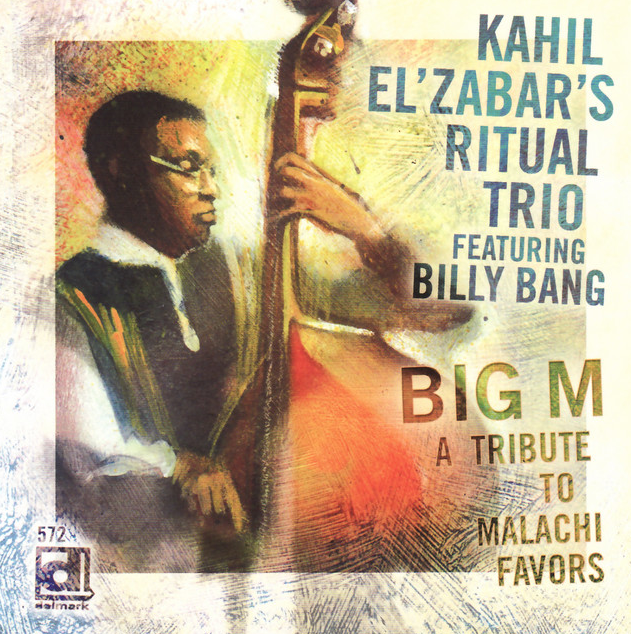
El'Zabar formed the Ritual Trio, an ensemble that originally included two illustrious members of the Art Ensemble of Chicago: Lester Bowie and Malachi Favors. Although Bowie passed away shortly after the group's formation, Favors remained a steadfast collaborator with El'Zabar for many years. Their partnership dates back to the late 1960s when a young El'Zabar was introduced to the Art Ensemble of Chicago by Muhal Richard Abrams, leading to several live performances together. The bond between El'Zabar, and Favors was both personal and professional, deeply rooted in their shared musical journey.
El'Zabar frequently switches to the kalimba, infusing the music with an African ambience. Ari Brown's saxophone preaches with fervor, while Billy Bang's violin interjects with dynamic, zigzagging solos. Ben Israel's bass provides a robust foundation, anchoring the music like a steady river flowing through the plains. These sessions are more than mere recordings; they are sonic narratives that harken back to ancestral traditions, evoking stories shared around the fire and the timeless transfer of wisdom between generations. Each piece is a vivid expression of emotion, connection, and the essence of life itself. In the hands of Kahil El'Zabar, the Ritual Trio's music transcends time, bridging the past and present with a sound that is both deeply personal and universally resonant.
This tribute to Malachi Favors stands as a testament to the enduring power of music to honour and celebrate the legacies of those who have passed.
The Lloyd McNeill Quartet: A Jazz Ensemble of Timeless Innovation
Formed in the mid-1960s by the visionary American flutist and composer Lloyd McNeill, the Lloyd McNeill Quartet carved out a unique space in the jazz world with their seamless blend of jazz, soul, and world music influences. This fusion resulted in a sound that was not only innovative but also profoundly captivating.
Lloyd McNeill, the quartet's leader, was a multi-talented and versatile musician, mastering both the flute and saxophone. His compositions were distinguished by their rich melodies, intricate harmonies, and complex rhythms, drawing inspiration from diverse musical traditions across the globe. McNeill’s ability to weave these elements together created a tapestry of sound that was as sophisticated as it was soulful.
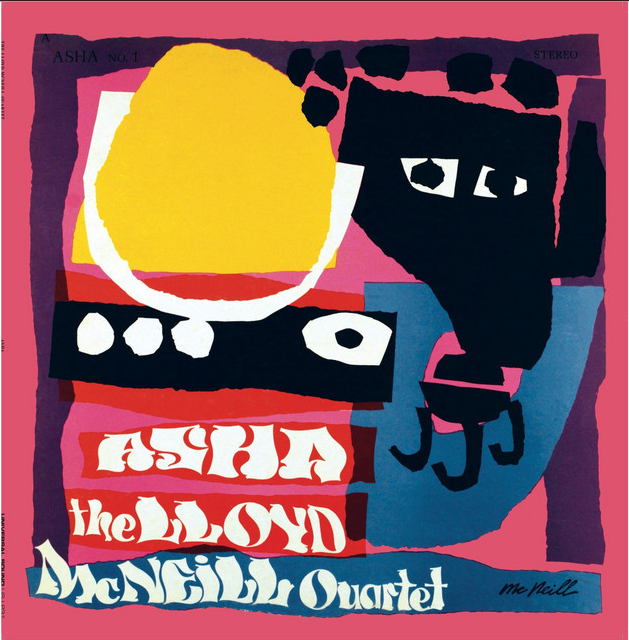
The ensemble's dynamic and engaging live performances were showcased at numerous prestigious venues and music festivals, further cementing their reputation as a formidable live act. Each performance by the Lloyd McNeill Quartet was a testament to their technical prowess and the emotional resonance of their music.
The Lloyd McNeill Quartet released several critically acclaimed albums throughout their career. Notable among them are “Asha” and “Washington Suite,” both of which were celebrated for their originality and creative depth. The quartet's music was lauded for its emotional intensity, technical brilliance, and masterful improvisation, securing them a dedicated fan base among jazz enthusiasts.
The legacy of the Lloyd McNeill Quartet endures, with their music continuing to be celebrated for its timeless quality and enduring appeal. Their innovative approach and influential sound have left an indelible mark on the jazz world, ensuring their place in the annals of music history as one of the most ground-breaking and influential jazz ensembles of their time.
Nik Bärtsch’s RONIN RHYTHM CLAN - Modul 22
Exploring the Musical Odyssey of Zurich's Multifaceted Maestro, Born in Zurich in 1971, this prodigious pianist, composer, producer, and author has carved a distinctive niche in the world of contemporary music. His journey began with piano and percussion lessons at the tender age of eight, leading to his graduation from the Musikhochschule Zürich in 1997. Furthering his intellectual pursuits, he studied philosophy, linguistics, and musicology at the University of Zurich from 1998 to 2001. A six-month sojourn in Japan during 2003/04 enriched his artistic vision, fuelling his ongoing project, RITUAL GROOVE MUSIC.
As the creative force behind MOBILE (established in 1997 with Sha and Nicolas Stocker) and the zen-funk quartet RONIN (formed in 2001 with Kaspar Rast, Jeremias Keller, and Sha), he has been at the forefront of innovative musical exploration. In 2006, he founded Ronin Rhythm Records, a label dedicated to fostering creative groove music, and since 2005, he has been an esteemed ECM artist.
His influence extends to Zurich’s vibrant music scene, co-founding the Music club EXIL in 2009 and the Indie-Classical Festival Zurich Apples and Olives in 2014.
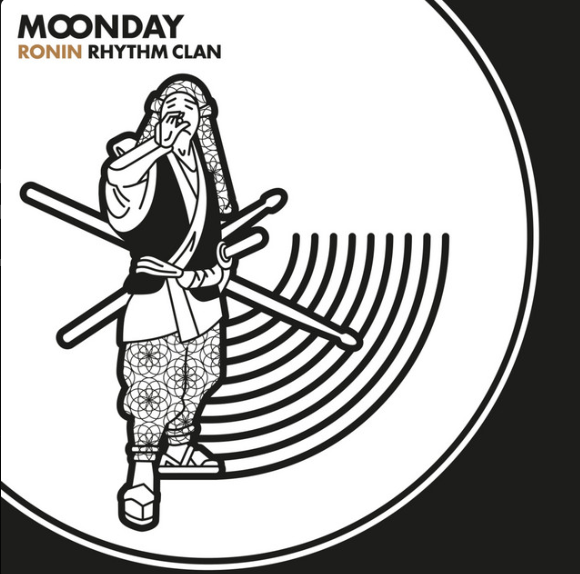
His musical philosophy is encapsulated in his seminal work, RITUAL GROOVE MUSIC. He describes this concept as reflecting a profound connection to architecturally organized space, driven by principles of repetition, reduction, and interlocking rhythms. "A piece of music can be entered and inhabited like a room," he explains. "It moves forward and transforms through obsessive circular movements, the superimposition of different meters, and micro-interplay. The listener's attention is drawn to minimal variations and phrasing. The band becomes an integral organism—like an animal, a habitat, an urban space. One must think with ears and hands."
This unique approach has not only defined his career but has also pushed the boundaries of contemporary music, making his work an essential study for enthusiasts and scholars alike. His contributions continue to resonate, offering a richly textured auditory experience that invites listeners to engage deeply with each composition.
Leon Thomas: The Avant-Garde Jazz Vocalist Who Redefined Boundaries
Leon Thomas, who rebranded himself as Leone in 1974, left an indelible mark on the jazz world in 1969 with his iconic performance of "The Creator Has a Master Plan" alongside Pharoah Sanders. This track demonstrated that even avant-garde jazz could achieve mainstream popularity under the right circumstances. Thomas was a fairly conventional singer with one distinctive twist: his unexpected bursts of yodelling in the middle of his vocals, a technique later occasionally adopted by artists like James Moody.
Thomas' early musical journey saw him collaborating with notable musicians such as Grant Green, Jimmy Forrest, and Hank Crawford. He honed his craft at Tennessee State University, where he studied music for two years before moving to New York in 1958. His career included touring with a show sponsored by the Apollo Theater, and two stints with Count Basie in 1961 and between 1964-1965. He also performed with jazz luminaries like Mary Lou Williams, Randy Weston, Rahsaan Roland Kirk, and Oliver Nelson.
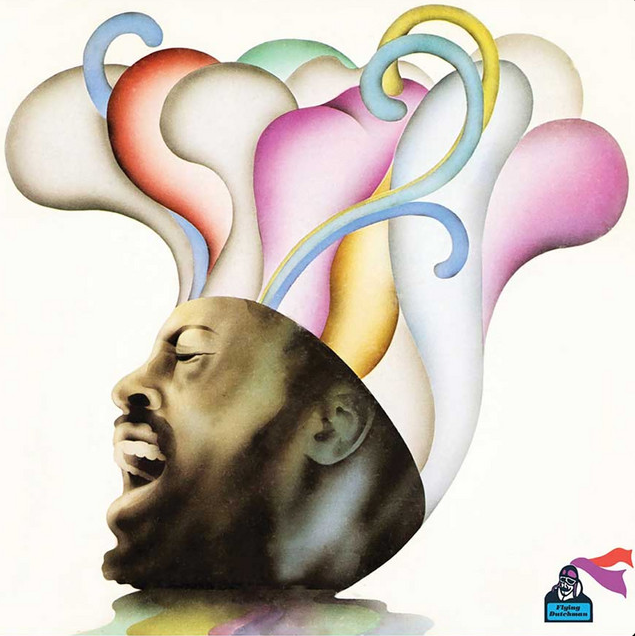
The release of "The Creator Has a Master Plan" in 1969, both under his name and more famously with Sanders on the album "Karma," positioned Thomas on the cusp of stardom. However, despite this breakthrough, his career did not reach the heights many expected, and he remained somewhat of an underground figure in the jazz scene.
As a leader, Thomas recorded for various labels including Flying Dutchman, Blues Time, Mega, and Italy's Palcoscenico (notably with Freddie Hubbard's group in 1979). He also led a blues-oriented band for Portrait in 1988 and recorded for Mapleshade. His versatility as a sideman was evident through collaborations with diverse artists, from a 1970 recording with Louis Armstrong to working with Carlos Santana in 1971.
Leon Thomas' career, though filled with moments of brilliance, never fully took off as it deserved. He continued to contribute to the music world until his passing from heart failure on May 8, 1999. His legacy, characterized by his unique vocal style and innovative approach, remains a testament to his influence on the jazz genre.
Les McCann, Eddie Harris - Compared to What - Live at Montreux
The McCann-Harris Collaboration at the 1969 Montreux Jazz Festival: A Milestone in Jazz History, on June 21, 1969, pianist Les McCann and tenor saxophonist Eddie Harris joined forces at the Montreux Jazz Festival for a performance that would become legendary. Alongside them were Benny Bailey on trumpet, Leroy Vinnegar on bass, and Donald Dean on drums. This remarkable assembly of talent gave rise to a performance that would be immortalized on the album "Swiss Movement."

The set opened with McCann and Dean establishing the rhythmic foundation, soon joined by Vinnegar, who completed the trio and introduced the theme. Harris entered next, weaving his tenor saxophone seamlessly with McCann's piano and vocals. After four verses, Bailey took a dynamic solo, after which the ensemble reconvened, playing together until the final verse. The performance then featured exhilarating solos from both McCann and Harris, bringing the piece to a powerful close.
Their rendition of the song, featured on "Swiss Movement," became a commercial triumph. The single sold over a million copies, reaching No. 35 on Billboard's R&B chart and securing a spot on the U.S. Cash Box Top 100 for two weeks in January 1970, peaking at No. 96.
The success of this recording had a significant impact on McCann's career, enabling him to transition away from the nightclub circuit. Furthermore, the song's enduring appeal was highlighted when it was featured on the soundtrack of Martin Scorsese's 1995 film "Casino."This collaboration at Montreux not only exemplified the synergy between McCann and Harris but also underscored the transformative power of live jazz performances. The enduring legacy of their 1969 Montreux set continues to resonate with jazz aficionados and music lovers around the world.
Fergus McCreadie - Stony Gate
Fergus McCreadie is one of the most exciting young jazz pianists on the world stage. With his unique blend of Jazz and Scottish folk music inspired by his country's sublime landscapes, Fergus captures the hearts and minds of audiences worldwide. He is undoubtedly a future star in the making.
Released on Edition Records to instant critical acclaim, Forest Floor topped the UK Jazz & Blues charts, prompting sold-out performances at Queen's Hall, Edinburgh and Love Supreme Festival. Fergus is the only non-classical musician to be selected as a 2022 BBC New Generation Artist.
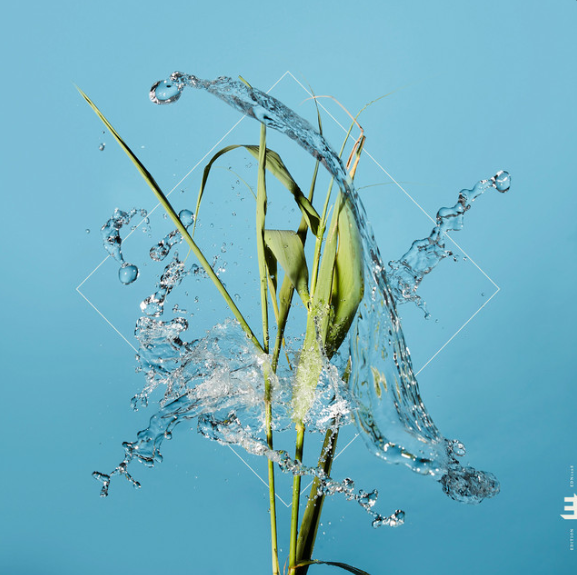
His latest album, Forest Floor, in its artwork and aesthetic, develops the themes of Fergus's repertoire. Whilst his second album 'Cairn', released on Edition Records in January 2021, focussed on the permanence and beauty of Scottish stone, Fergus felt that this album had a greater earthiness to it, illustrated by the changes in the seasons produce on the forest floor, a perception that fed into the concept for the new work.
The connection to Fergus' locality, the nature and landscapes of Scotland provides his music with a huge appeal that goes beyond jazz and music.
Remy Le Boeuf’s Assembly of Shadows - Stop and Go
Remy Le Boeuf's music is where jazz tradition meets modern classical vibes, drawing inspiration from the likes of Aaron Copland and Bjork.
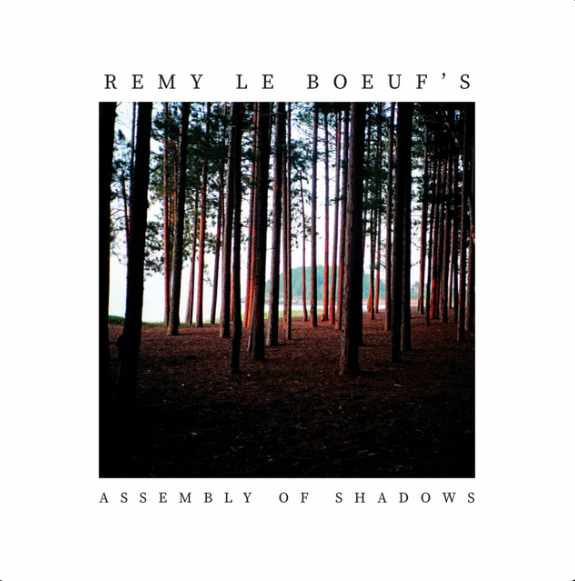
This talented saxophonist and composer has shared the stage with an impressive roster, including the Jazz at Lincoln Centre Orchestra with Wynton Marsalis, HAIM, JACK Quartet, Knower, and Linda Oh.
Plus, he's got some serious family talent—he co-leads the Grammy-nominated Le Boeuf Brothers with his twin brother Pascal. Whether he's collaborating with top-notch musicians or exploring new musical landscapes, Remy’s work is always pushing boundaries and redefining genres.
Brian Blade & The Band Celebrate 25 Years
This year marks a silver anniversary for Brian Blade & The Fellowship Band, a group that's become synonymous with soulful jazz meditations. Let's revisit their journey and the music that continues to resonate with listeners.
The story begins in 1988, not with the band's formation, but with a meeting that would lay the groundwork for their future sound. It was at Loyola University in New Orleans that drummer and composer Brian Blade first crossed paths with pianist and fellow composer Jon Cowherd. This connection would prove pivotal.
Fast forward nearly a decade, and 1997 sees the birth of The Fellowship Band. Joined by bassist Christopher Thomas and saxophonists Myron Walden and Melvin Butler, the group quickly established a musical rapport that critics would describe as "grace and unity."
Their debut album, simply titled Brian Blade Fellowship, arrived in 1998 on the legendary Blue Note label. This was followed by Perceptual in 2000, solidifying their place in the contemporary jazz scene.
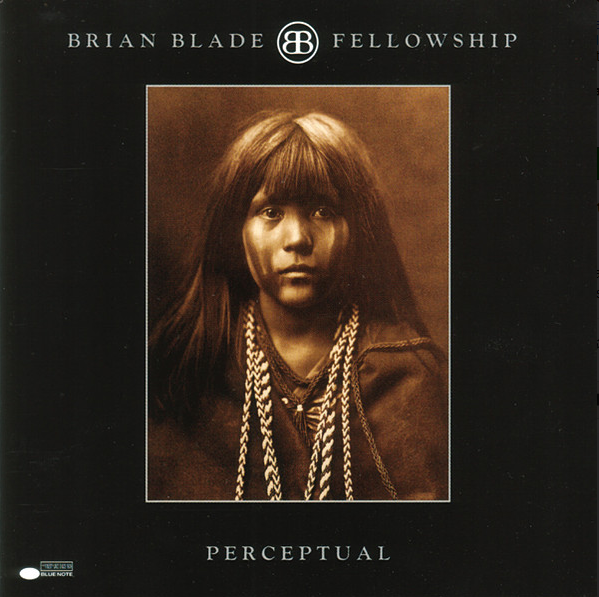
The wait for new music wasn't too long, with Season of Changes gracing our ears in 2008. This nine-track masterpiece, recently re-released for the band's 25th anniversary, is described as a "succinct meditation on lightness and darkness," a testament to the band's ability to explore emotional depth within their music.
The Fellowship Band continued to deliver, with Landmarks hitting shelves in 2014 and Body and Shadow following in 2017. Their entire discography, spanning five albums, stands as a testament to their enduring creative spirit.
Brian Blade & The Fellowship Band are more than just a collection of talented musicians. They're a unit, a fellowship in the truest sense, bound by a shared love for music and a commitment to creating something beautiful and profound. Here's to celebrating their 25 years of enriching the world of jazz with their unique blend of grace, emotion, and sonic storytelling.
The first time I came across Brian Blade, I was mesmerized by his drumming skills and followed him ever since - check out this recording in 1998 at Warner's Lot in Los Angeles. All masters of their craft.
Musicians: Brian Blade, Mark Isham, Greg Leisz, Larry Klein, Supporting Joni Mitchel, https://www.youtube.com/watch?v=ly6-8gLk8os
Kamaal Williams Blends Jazz, Funk, and Hip-Hop
Kamaal Williams isn't just a keyboardist, DJ, and producer – he's a sonic architect. This London native weaves a spellbinding tapestry of influences, fusing the fire of 70s jazz-funk with the pulsating energy of contemporary hip-hop and EDM.
Within the vibrant South London scene, Williams holds a unique space. He's revered by jazz cats, respected by rappers, and embraced by DJs, all thanks to his infectious style that's both sophisticated and undeniably groovy.
While Williams has been a fixture in various bands since the mid-2000s, his rise to prominence came in 2016. Alongside drummer Yussef Dayes, he formed the powerhouse jazz-funk duo Yussef Kamaal. Their 2016 album, Black Focus, garnered international acclaim, setting the stage for Williams' solo journey.
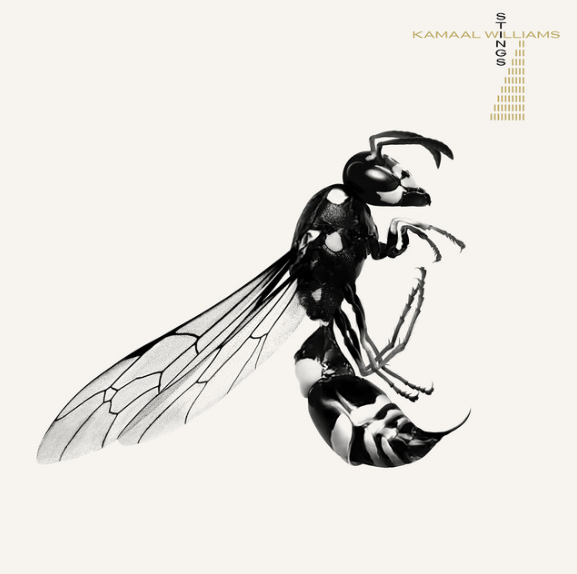
In 2018, he unveiled his solo debut, The Return. This wasn't a departure from his collaborative sound; it was a refinement. The album showcased his signature blend of jazz-funk and electronica, propelled by a tight band led by drummer MckNasty, bassist Pete Martin, and the sonic wizardry of Richard Samuels.
The Return wasn't just a critical success; it catapulted Williams into the global club culture. Williams' musical compass was set early on. His father instilled a love for jazz fusion giants like Miles Davis, John Coltrane, and Carlos Santana. As he delved deeper, he discovered the smooth grooves of acid jazz outfits like Brand New Heavies and Incognito.
By the time he finished high school, Williams was a sought-after keyboardist, lighting up London's funk scene with various bands. He even spent two years touring with dubstep singer Katy B.
However, a turning point came around 2011. Williams converted to Islam and adopted the name Kamaal. This spiritual shift coincided with a return to his production roots. Signed to the independent 22a label, he began crafting his own sound – a fusion of jazz, house music, and the broken-beat rhythms of the electronic underground.
Fate intervened in 2016 when Williams met drummer Yussef Dayes. Their instant connection birthed Yussef Kamaal, a testament to their shared love for the groove.Following Yussef Kamaal, Williams returned with a vengeance in 2020. His sophomore album, Wu Hen, showcased his ever-evolving sound. He assembled a stellar cast of collaborators, including drummer Greg Paul, bassist Rick Leon James, and saxophonist Quinn Mason. The album also featured guest appearances from string maestro Miguel Atwood-Ferguson, harpist Alina Bzhezhinska, and the soulful vocals of Lauren Faith on the single "Hold On."
Kamaal Williams is more than just a musician; he's a curator of sonic experiences. With each project, he pushes boundaries and defies definition, leaving us eager to see what sonic landscapes he'll explore next.
Los Angeles the birth place for Build an Ark, a unique musical collective unlike any other. Founded in 2001, it wasn't just a band – it was a transcultural and intergenerational response, a message of peace born from the ashes of the September 11th tragedies.
Inspired by Sun Ra's Arkestra, Build an Ark took the concept of "Arkestry" to heart – the belief that music can uplift and transform lives. This wasn't just about sonic innovation; it was about emotional, spiritual, and moral awakening.
The collective was a force to be reckoned with. Led by the visionary trio of DJ/producer Carlos Niño, composer/multi-instrumentalist Miguel Atwood-Ferguson, and veteran vocalist Dwight Trible, Build an Ark brought together a diverse range of musical voices. Violinist Michael White, the legendary trumpeter Phil Ranelin, saxophonist Derf Reklaw, and vocalist Tracey Wannomae were just a few of the talented souls who contributed to their sound.
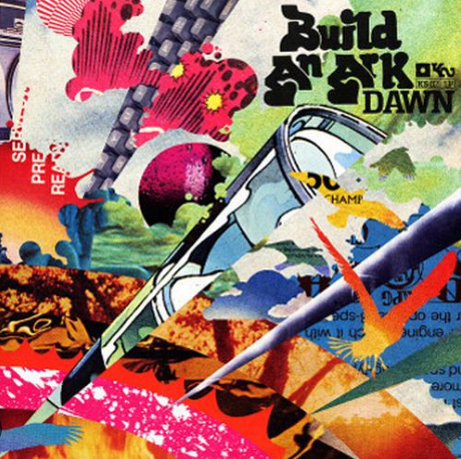
Their music defied easy categorization. Imagine a vibrant tapestry woven from threads of 21st-century soul, spiritual jazz, spoken word poetry, modern improvisation, and even a touch of cosmic pop. It was a sound that resonated deeply, stirring the soul and sparking conversations.
Their debut, "Peace with Every Step", set the tone for their musical journey. This 12" single, followed by the full-length album in 2004, established their message-driven approach. They tackled social issues and human aspirations with a blend of musicality and conviction.
They weren't afraid to experiment either. From a Pharoah Sanders cover to remix projects and a tribute EP, Build an Ark consistently pushed boundaries. Albums like "Dawn" and "Love Part 1 & 2" cemented their critical acclaim, earning them a dedicated international following.
Build an Ark wasn't just about studio magic. They were a live force, captivating audiences on both sides of the Atlantic, playing intimate club gigs and soaring festival stages. Their music transcended language and cultural barriers, proving the power of a shared musical message.
Build an Ark's story is one of unity, artistic expression, and a commitment to uplifting the human spirit. Their legacy continues to inspire, reminding us of the transformative power of music and collaboration.
The Swing Phophets
The Swing Prophets have a musical influence encompassing jazz from around the World!, with the aim to bring the Swing of All kinds of Cultural music back!
The Prophets Of Swing are a gypsy jazz-inspired swing band with a modern edge. They first played together around 10 years ago and still going strong!
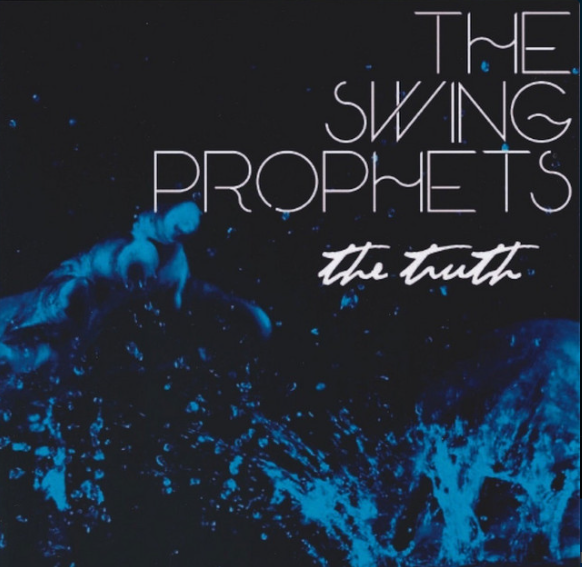
Comprising of alto saxophone, guitar and double bass, they perform a collection of jazz standards, Django Reinhardt compositions and some originals to create a sense of class at any event.
The result is a haunting mix of energetic swing and relaxing melodies that would suit any occasion.
Between them, the Prophets Of Swing have performed across Europe including top London jazz clubs (The Vortex. 606 Club, Jazz Café) and major festivals including Glastonbury and The Edinburgh Festival.
Kelan Phil Cohran & Legacy – White Nile
Legendary jazz trumpeter Kelan Phil Cohran played the trumpet with Sun Ra and His Arkestra, co-founded the Association for the Advancement of Creative Musicians (AACM), was a respected educator (one of his students was a young Maurice White), opened the Afro-Arts Theatre in Chicago, and invented the Frankiphone (aka space harp), an electric mbira. He also recorded extensively with The Hypnotic Brass Ensemble, a group composed of eight of his sons and performed live regularly.
Though the track White Nile from the album African Skies was recorded a later stage in his career (by which point he had already been given the honorific Kelan, meaning holy scripture, by Muslim scholars during a trip to China), it’s considered by many to be a cosmic jazz masterpiece and one of his finest works. His first record since his 1969 Malcolm X memorial, this was recorded live at the Adler Planetarium in Chicago as a glowing tribute to Sun Ra, Cohran’s mentor and friend who had recently passed away.
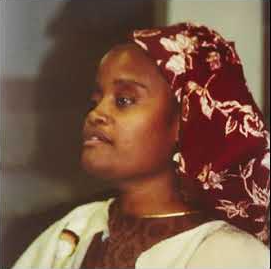
African Skies is mostly acoustic and fairly minimal, but for all its sparsity, it’s hypnotic, deftly expressive, and all the more powerful for doing less. Trumpet, harp, frankiphone, congas, violin uke, guitar, flute, bowed string bass, clarinet, trombone, and vocal riffing by Aquilla Sadalla that, whenever I’ve played this on air or at home in a social setting, someone has always asked who is this.
Lonnie Liston Smith: A Spiritual Journey Through Jazz, Funk, and Beyond
Before taking the helm of his own band, pianist/keyboardist/composer Lonnie Liston Sith left his mark on some of the most significant recordings in jazz history. Collaborations with Roland Kirk, Pharoah Sanders, Gato Barbieri, and even Miles Davis himself cemented Smith's reputation as a rising star.
But it was with the formation of the Cosmic Echoes in 1973 that Smith truly ignited the scene. A string of six influential electric albums for Flying Dutchman, including the genre-bending classics "Astral Traveling" and "Visions of a New World," established him as a pioneer in jazz-funk fusion.
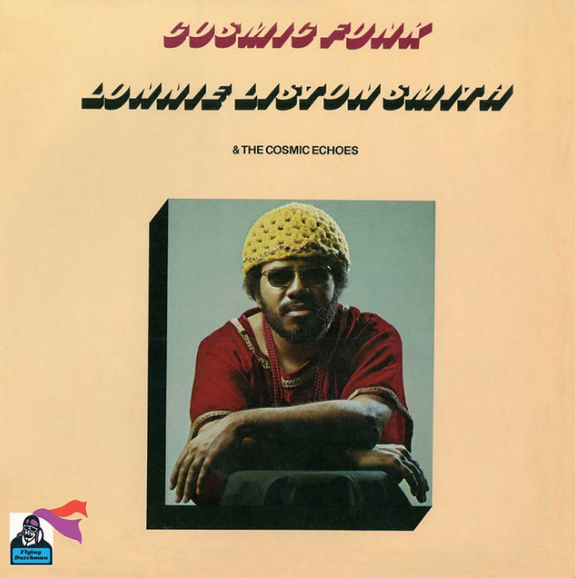
Smith's musical odyssey continued with a shift to Columbia Records between 1978 and 1980. These four outings, exemplified by "Exotic Mysteries" and "Love Is the Answer," showcased a conscious exploration of the burgeoning funk, disco, and smooth jazz movements.
A personal turning point arrived with a spiritual awakening, leading Smith to Dr. Jazz and Startrak Records for the next two decades. This period culminated in his 1998 release, "Transformation."
Following a 25-year hiatus from recording under his own name, Smith re-emerged in 2023 with a new sonic chapter. Collaborating with the esteemed Ali Shaheed Muhammad (A Tribe Called Quest) and producer Adrian Younge, Smith's "Lonnie Liston Smith JID017" marked a triumphant return.
Lonnie Liston Smith's story is one of constant evolution, a testament to his enduring creativity and ability to seamlessly navigate the ever-shifting landscape of music. From his early days as a sought-after sideman to his role as a jazz-funk innovator and beyond, Smith's musical journey continues to inspire.
Harry Beckett: A Genre-Bending Trumpet Master from Barbados
Harry Beckett wasn't just another trumpeter. Arriving in Britain from Barbados in 1954, he became a cornerstone of the UK jazz scene for over five decades. Renowned for his fiery solos and lyrical phrasing, Beckett effortlessly transcended genres, collaborating with jazz giants and rock legends alike.
Beckett honed his skills in a Salvation Army band before moving to England. He quickly found work with established British bandleaders like Graham Collier and Mike Westbrook. While his 1970 leader debut "Flare Up" marked his official solo journey, Beckett remained a busy session musician, playing on early fusion recordings by Ray Russell and John Surman.
Beckett's musical curiosity extended beyond jazz. He readily lent his trumpet to rock acts like Humble Pie and Manfred Mann, and even dabbled in reggae and funk with The The, Jah Wobble, and the Raincoats. This genre-hopping made him a highly sought-after sideman.

Beckett's 1975 album "Joy Unlimited" cemented his reputation as a fusion innovator. It seamlessly blended post-bop with Caribbean and African funk, captivating audiences and critics alike. He continued to explore diverse sounds throughout his career, collaborating with South African exiles like Johnny Dyani and Chris McGregor.
Beckett's final decade wasn't a slowdown. He remained a featured soloist and session musician, collaborating with artists like Rizwan-Muazzam Qawwali and the London Improvisers Orchestra. His final album, "The Modern Sound of Harry Beckett," produced by Adrian Sherwood, showcased his enduring love for experimentation, encompassing jazz-funk, reggae, and dub.
The 80s saw Beckett busier than ever, working with everyone from Robert Wyatt to David Sylvian. He also championed younger musicians, appearing on The Raincoats' "Moving" and mentoring future stars like Courtney Pine. The 90s found him contributing to iconic recordings like Jah Wobble's "Erzulie" while leading his own projects and joining tribute bands like The Dedication Orchestra.
Harry Beckett passed away in 2010, leaving behind a rich musical legacy. He was a true genre-bender, a versatile musician who left his mark on jazz, rock, reggae, and beyond. His influence continues to inspire musicians today.